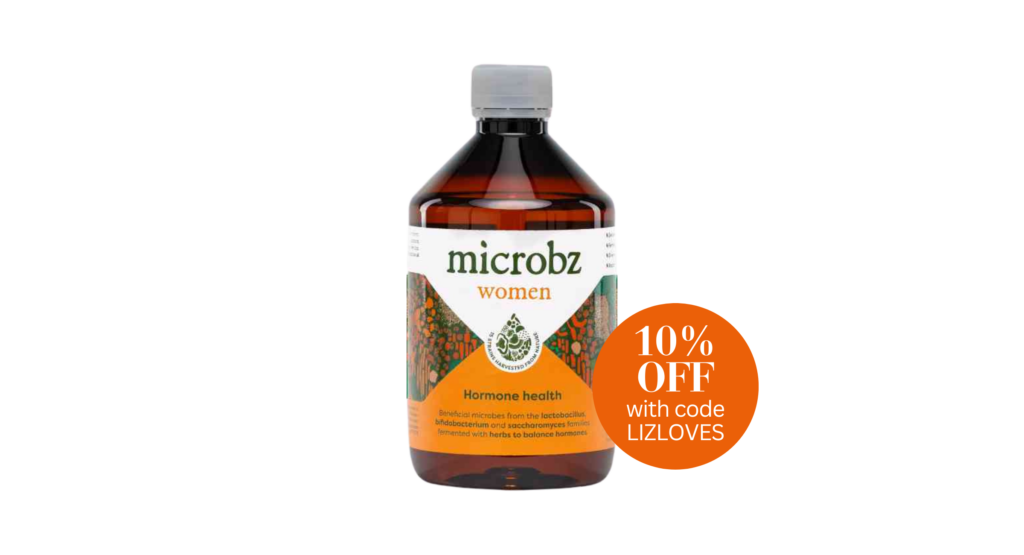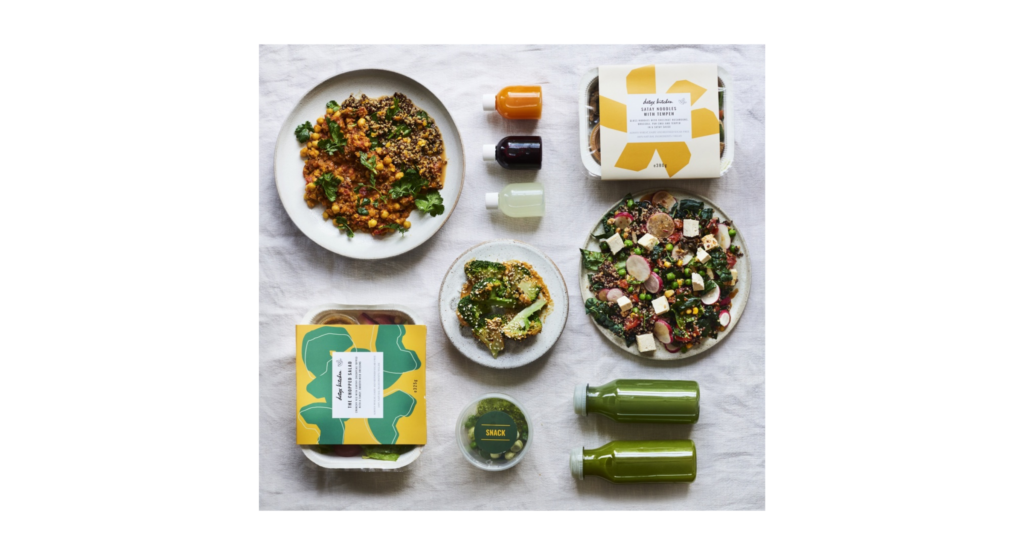Health
5 nutritionist-approved strategies for a healthy diet during menopause and beyond
While we’re fond of a supplement or two, there’s nothing more important for wellbeing than a healthy diet, bursting with fresh produce and all the nourishment needed to age well.
This is especially true during perimenopause, menopause and the post-menopausal years that follow. As oestrogen levels fall and the years pass, we might notice changes in our metabolism, energy levels and nutrient needs.
Many women find that’s its more challenging to maintain a healthy weight. We’re also more likely to feel short on energy or to struggle with brain fog, anxiety or low mood. And then there’s longevity to consider – how can we fortify our bones, muscles, brains and all-important cells with everything they need for a long, strong, happy life?
The answer starts with a well designed diet. This needn’t be complicated, the nutritionists say – we need only keep five principles in mind.
5 tips for a healthy diet during menopause and beyond
1. Stay sugar smart
Midlife is not the time to adopt a restrictive diet, Liz says: “I believe we should be adding more of the good stuff back into our diets, not stripping foods away.”
She does makes an exception for processed sugars, however – a principle that nutritionist Zara Kirk agrees with.
“Processed white sugar is one thing that’s a really good idea to remove from your diet,” Zara explains. “It’s hidden in most ultra-processed foods and women are much more likely to become insulin resistant during menopause, which makes keeping blood sugar levels low and stable a challenge.”
There’s also evidence that a diet high in sugars can make menopause symptoms worse.
But, while cutting sugar is key, we needn’t banish all sweet treats from our diet. Zara recommends nutrient-rich fruit (bursting with cell-protective antioxidants and polyphenols) as well as homemade treats. “You can tailor these to your own needs,” she explains.
Liz favours dark chocolate. “I used to not like dark chocolate, having been brought up with the traditional milk chocolate ‘junk’ bars wrapped in bright plastic wrappers to tempt us at the supermarket or petrol station,” she says. “However, it is possible to wean yourself off the sweeter stuff in stages. If you’re a chocoholic who doesn’t like dark varieties, try scaling up the percentage of cocoa each time you buy, gradually getting used to a slightly more bitter taste.”
Limit refined carbs
Liz and Zara agree that keeping an eye on the quantity of refined carbohydrates in our diet can help too.
Zara recommends swapping refined carbs (potatoes, white rice and refined flours) with slow-release complex carbs such as brown rice or quinoa. This can help us maintain a healthy weight as we age: “If you’re not leading a physically demanding life, smaller portions of grain carbohydrates can help with the fact that metabolism can really dip during menopause,” she explains.
Liz similarly follows an 80:20 rule when it comes to carbs. “I generally stick to a low-carb, high-fat and protein diet,” she says. “Of course, I’ll have that slice of birthday cake or square of chocolate but I’ve found the fewer carbs I eat, the less I crave them and that’s no bad thing.”
A continuous glucose monitor (or CGM) can also help us keep a closer eye on our carb and sugar intake. These devices measure glucose levels throughout the day, letting us know when we’ve exceeded healthy levels – resulting in a steep glucose spike and energy-depleting crash.
2. Put your gut first
“The gut, our hormones and our feelings are all tightly interwoven,” says Zara. “If we approach our diet and lifestyle with this in mind, we are three quarters of the way there to supporting ourselves through menopause.”
Choosing fresh, colourful, nutrient-dense foods is the first pillar of a gut-friendly diet, Zara says. ”These support your beneficial microbes with lots of phytonutrients and are easier to digest so you’re more likely to absorb the nutrients you need.”
Probiotic foods such as kimchi, kefir, live yoghurt and kombucha can also help to give our gut a boost.
We might also consider a probiotic supplement. “I recommend Microbz products to women at this time as they are completely natural, alive and brimming with goodness from a range of beneficial microbes to added herbs and minerals,” says Zara. “When choosing your probiotic, it’s not just about the quantities of particular microbes, but also the number of different strains which can help your body use and absorb the probiotic.” Use code LIZLOVES for 10% off Microbz probiotics.
3. Prioritise protein
Our protein requirements increase with age, says Meghan Foulsham, Senior Nutritionist at Detox Kitchen, so it’s important not to skimp on this strengthening macronutrient. “Increasing your protein intake can help to reduce the risk of muscular atrophy, helping to maintain muscle mass for longer.”
Alongside healthy fats and fewer carbs, Liz is a big believer in the importance of eating more protein. “Replacing at least some of the carbs in our daily diet with protein increases fat loss, especially around the tummy,” she explains. “Protein also helps to eliminate food cravings, gives our metabolism a helpful boost and helps us recover lean tissue and build stronger muscle.”
For this reason, Liz and the nutritionists recommend a sizeable serving of good quality protein with every meal. “For breakfast, I’ll have a couple of boiled eggs in the morning or thick plain yoghurt,” Liz says.
4. Don’t fear fats
As oestrogen levels decline during menopause, our risk of heart disease increases. This makes heart-protective omega-3 fatty acids all the more important as they’ve been shown to help reduce cholesterol, says Meghan. “Omega-3 is also believed to reduce hot flushes, as well as aid in balancing your mood with your changing hormones.”
Zara similarly agrees that these anti-inflammatory fats can help manage the mood-related symptoms of menopause: “Omega-3s are not only helpful for cell and brain health but also for our gut beneficial microbes. Anxiety is something that can suddenly occur during menopause and looking after the gut/brain relationship can help manage this symptom.”
If you’re looking for easy ways to squeeze more oily fish into your diet, try our salmon and asparagus pilaf or griddled mackerel recipe. Omega-3 supplements are also a convenient way to keep levels topped up if we’re not eating plenty of fish each week.
5. Increase phytoestrogens
“Phytoestrogens are a plant oestrogen that is very similar to human oestrogen,” says Meghan. “If eaten regularly, and in sufficient quantities, phytoestrogens can have an oestrogen-like effect on the body, which, although mild, can be useful as oestrogen levels decline.”
“For some women, hearty helpings of phytoestrogens – best spread in smaller portions throughout the day, rather than one large portion – can reduce menopausal symptoms; particularly hot flushes,” she adds.
Foods that contain phytoestrogens include cruciferous vegetables, legumes, soy and soy-based products – think plentiful portions of tofu, lentils, broccoli or a serving of Liz’s super menopause tea loaf.
Our pick of the best products
Microbz Probiotics
Liz and Zara love these soil-based probiotics, bursting with live bacteria to support a diverse gut, healthy hormones, well-balanced immune system and lifted mood. A midlife essential. Use code LIZLOVES for 10% off.
Detox Kitchen 3-Day Reset
Ready to kick a sweet tooth and get into the habit of healthy eating? Take the guesswork out of it with a three-day reset designed by the nutritionists at Detox Kitchen. The freshly prepared meals are delivered direct to your door and have been designed with metabolic and hormone health in mind. Think healthy fats, plenty of protein and refined-sugar-free treats.
Words: Ellie Smith
Read more features like this
- The benefits of omega-3 fatty acids for women during menopause
- Always forgetting your vitamin D supplement? Try this easy hack
Please note, on some occasions, we earn revenue if you click the links and buy the products, but we never allow this to bias our coverage and always honestly review. For more information please read our Affiliate Policy.







